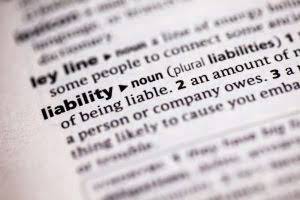
The general ledger integrates seamlessly with these systems, ensuring that all financial data is synchronized across platforms. Within the accounting ledger, individual accounts are maintained for assets, liabilities, equity, income, and expenses. They help with https://www.bookstime.com/ tax reporting, prevent fraud, and provide a clear financial picture. They’re a go-to financial resource that ensures financial statements are accurate and up-to-date. Accounting software can streamline the entire process of general ledger management.

Are you ready to manage and grow your firm the way all high-performing practices do?
That structure is essential for tracking account balances and producing correct income and balance statements. Regularly reconciling bank statements with your general ledger ensures that your recorded transactions match your actual cash flow. Regular reconciliation and frequent reviews are crucial for identifying discrepancies and maintaining accurate legal bookkeeping. The day-to-day management of a retained earnings balance sheet general ledger for law firms requires diligence and accuracy to ensure that the firm’s financial records remain up-to-date and error-free. Law firms typically keep both client account records and firm account records.

Best Law Firm Accounting Software for 2025
Learn more about the legal chart of accounts and view examples of formatting. You can also use a law firm insights dashboard to identify what parts of your practice are most and least successful—so you can more thoughtfully allocate resources to stimulate future growth. Whether intentional or through neglect, violations of compliance regulations—like mishandling client funds—can lead to serious repercussions. Ensure seamless integration of the general ledger with your case management, timekeeping, and billing software. If you’re transitioning from a manual system or another software, carefully migrate your financial data to the new general ledger.

Losing Track of Billable Time
Committing to accounting for law firms will allow you to be better equipped to identify growth opportunities. Managing a law firm chart of accounts and general ledgers involves numerous transactions, strict regulatory requirements, detailed reconciliation needs, and accurate financial reporting. Let’s take a look at some practical advice and strategies to simplify the creation and maintenance of these crucial accounting components. Select legal accounting software that aligns with your firm’s size and budget. Many software options offer features specifically designed for law firms, including trust accounting and time billing.
- Without proper attorney bookkeeping, it’s impossible to track what money is coming (and leaving your firm).
- Tabs3 offers an industry-leading suite of law firm accounting and bookkeeping software designed to help law firms manage billing, accounting, case files, and client relationships more efficiently.
- Law firms must comply with all applicable tax regulations for their jurisdiction—such as income tax and payroll tax.
- The future of law firm accounting software is focused on automation, integration, and real-time financial tracking, enabling law firms to streamline operations and reduce human error.
Clio Accounting: Accounting made approachable

While Law firms must follow strict compliance and ethics rules for trust management, the rest of law firm general ledger accounts their business is pretty simple and straightforward. The accounting basics can help you track revenue and expenditures, better manage your time, and find key areas of your business that you can improve on. If you’re seeking a unified solution for case management and legal accounting, Clio could be the perfect fit.
An accounting general ledger is a record of all of a company’s financial transactions. It contains detailed information about each transaction, including dates, amounts, and descriptions. Most importantly, from an accounting perspective, the general ledger includes debits and credits for each transaction.
- Accounting for law firms may be new or challenging to you, but it doesn’t have to be scary.
- Implementing robust internal controls, automation tools, and regular training further enhances the accuracy and reliability of financial management.
- Traditional accounting methods often fall short, making specialized accounting software an essential tool for law firms of all sizes.
- The overarching goal of GAAP is to ensure all companies, including law firms, consistently craft financial statements that are complete and comparable.
- Billing errors or mismanagement of client funds can violate ethical standards and lead to serious legal consequences.
In addition to standard categories for assets, liabilities, and equity, law firms must incorporate specialized accounts for client funds held in trust, client billings, and case-related expenses. By customizing the chart of accounts to reflect the unique financial aspects of legal practice, firms can streamline their accounting processes and ensure compliance with trust accounting rules. Integrating the general ledger with other financial software further enhances efficiency and accuracy, making it a vital part of any law firm’s financial strategy. LeanLaw is a cloud-based software designed to streamline financial operations for law firms of all sizes.